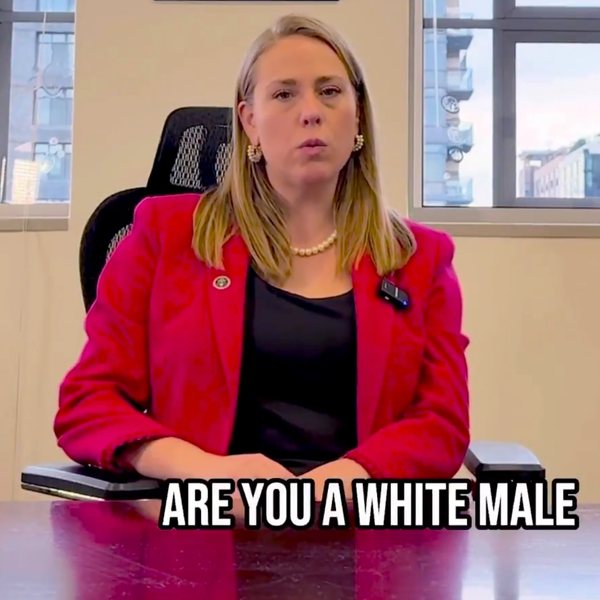
Portrait of Judge Susan B. Graber by Wayne Chin
Don’t look now, but we have suddenly arrived at an existential moment for the country, in the form of an emergency application from the Administration to the Supreme Court. In the coming days, the Court will either grant Trump powers that he could use—without exaggeration—to bring down constitutional rule, or it will stand up for the principle that the courts needn’t roll over in response to patently false claims from a would-be tyrant.
The justices have before them an emergency application—yes, another huge question to be decided on the shadow docket—in Trump v. Illinois. The case asks whether the president can invoke “emergency powers” to deploy troops on American soil whenever he declares that local law enforcement can’t handle a situation or that a “rebellion” exists. If the Court accepts that claim, it will have opened the door to a presidency unbound by fact, law, or judicial review—one able to fabricate crises and use them to consolidate power.
That may sound theoretical. It’s not. A ruling in Trump’s favor would give legal cover to the most dangerous play in his authoritarian playbook: declaring a manufactured emergency and using federal troops to interfere with the 2026 election—stationing them at polling places, seizing voting machines, or detaining election officials under the pretense of “protecting” the vote. Once the Court consecrates an invented emergency as a lawful one, there’s no obvious way back.
The Illinois case is one of two mirror-image cases quickly working their way up the federal courts. The other is the Portland case, in which Judge Karin Immergut, in an opinion I’ve analyzed and extolled at length, held that even applying a high standard of deference, the Administration’s claim of a “rebellion” justifying federalization of the Guard was simply “untethered to the facts.” Ditto for its assertion that normal law enforcement was “unable…to execute the laws of the United States.” Immergut explained that courts needn’t—indeed, may not—give effect to a presidential determination unless it reflects at least a “colorable assessment of the facts and law within a range of honest judgment.” Otherwise put, “a great level of deference … is not equivalent to ignoring the facts on the ground.”
A divided Ninth Circuit panel—both Trump appointees in the majority—reversed Immergut’s opinion on Monday. The majority ignored its obligation to review Immergut’s factual findings only for clear error—a phrase it did not even mention. Instead, it just declared that Immergut “substituted [her] own determination of the relevant facts and circumstances.” It’s a bizarre criticism that finds no support in Immergut’s careful analysis. The majority also took Immergut to task for not considering the record of violent episodes from previous months. But the statute calls for the president to make a finding of the present conditions.
One of the judges in the majority wrote a separate concurrence to argue that the president’s determination was not subject to any judicial review. Whether a rebellion exists, he argued, is a “political question.” That’s nonsense. Courts interpret statutory terms every day. Determining whether the factual predicate for a statute exists is bread-and-butter judicial work.
More generally, this complete-deference argument relies on a patent misreading of early 19th-century cases, as Steve Vladeck has conclusively demonstrated. But the argument could nevertheless rise from the dead in the Supreme Court case, where it appears as the Administration’s first submission.
That brings us to the dissent of Judge Susan Graber, which fairly shredded the majority. She pointed out that in the two weeks leading up to Trump’s finding, there was not a single incident of protesters—who numbered fewer than 30 in a single city block—disrupting the law. It was sheer fiction for the Administration to claim that it was unable to execute the laws. And the sporadic and uncoordinated criminal conduct did not “amount to a ‘rebellion’ under any reasonable definition of the term.”
In her conclusion, Graber eloquently laid out the stakes of the majority’s missteps. She assailed her two colleagues for “abdicat[ing] our judicial responsibility, permitting the President to invoke emergency authority in a situation far divorced from an enumerated emergency.” And she brought it back to first principles: “Except in true emergencies, and by design of the Founders and Congress, our civil society resolves its disputes without domestic military intervention.”
In a memorable final passage, she appealed to the rest of the Ninth Circuit to “swiftly vacate the majority order before the illegal deployment of troops under false pretenses can occur.” Then, addressing the public directly, she wrote, “Above all, I ask those who are watching this case unfold to retain faith in our judicial system for just a little while longer.”
Trump v. Illinois, the case the Supreme Court has now accepted on emergency application, is essentially the mirror image of the Portland case. The Administration is making the same set of claims to justify emergency powers under a statute that restricts them to cases of rebellion or the inability of the U.S. to enforce its laws.
The factual record in Illinois is almost a carbon copy of Portland. The supposed “rebellion” consisted of small, peaceful protests outside a suburban ICE facility. State and local police responded to every call. There was no collapse of law enforcement, no crisis of governance.
As the Seventh Circuit held in largely affirming the district court’s temporary restraining order, “political opposition is not rebellion”; rebellion involves “deliberate organized violence to resist governmental authority.” Critically, the Seventh Circuit held that “nothing in the text [of §12406] makes the President the sole judge of whether [its] preconditions exist.” And on the all-important deference question, the Seventh Circuit adopted essentially Judge Immergut’s position: it applied “great deference” to the Administration’s view of the facts but held that even so, there was insufficient evidence for the Administration’s claims.
So the issue is clearly teed up for the Supreme Court. And based on the routine, near-categorical support the president has gotten from the conservative supermajority, it’s a deadly serious and frightening crossroad. Will they recognize the gravity of the moment and comprehend their historic opportunity—and thus obligation—to stand up against tyranny? The record of the last ten months gives rise to grave concern on that score.
If the Supreme Court sides with Trump, the consequences will extend far beyond Illinois or Oregon. It would create a self-executing theory of emergency power: the president declares a crisis, the courts defer, and the crisis becomes real by virtue of that deference.
That power would not remain confined to immigration protests. In Trump’s corrupt hands, it almost certainly would metastasize into every realm of public life. A surge in voter turnout could be branded a “threat to federal election integrity.” A protest at a state capitol could be labeled a “rebellion.” A local police department’s restraint could be called an “inability to execute federal law.” Each claim would justify troops in the streets.
And worse, all of this would happen through the shadow docket. That opaque process, once reserved for routine stays, has become the Roberts Court’s tool for quietly transforming American law. Immigration, voting rights, pandemic powers—all have been rewritten in the shadows.
If the justices follow the same approach here, they could effectively anoint Trump with unreviewable emergency powers—without ever issuing a full opinion on the merits.
Judge Graber’s dissent ends with that aching phrase: “retain faith in our judicial system for just a little while longer.” She meant faith not as blind trust but as a wager—that the judiciary still has the courage to check power when power lies.
That faith is now being tested in real time. The Supreme Court can still reaffirm the principle that facts matter and block Trump’s Orwellian effort to manufacture emergencies based on lies. Or it can force the country down the path of blind deference to a serial liar and despot, permitting the president to exercise outlandish emergency authority and turning a blind eye to the blaring neon fact that he’s making it all up.
Should the Court rule for Trump, the damage will not stop in Portland or Chicago, because Trump will not stop there. He will run roughshod with that power over many aspects of American life, and most ominously, seek to use it to interfere with free and fair elections, as he tried unsuccessfully to do when he lost to Biden. So yes—retain faith, if you can. But faith alone won’t carry the day. Only judges who still believe that law means something—and have the courage to say so—can.
If the Court squanders that faith now, there may be no “little while longer” left to reclaim it.
Harry Litman is a former United States Attorney and the executive producer and host of the Talking Feds podcast. He has taught law at UCLA, Berkeley, and Georgetown and served as a deputy assistant attorney general in the Clinton Administration. Please consider subscribing to Talking Feds on Substack.
Reprinted with permission from Talking Feds.








